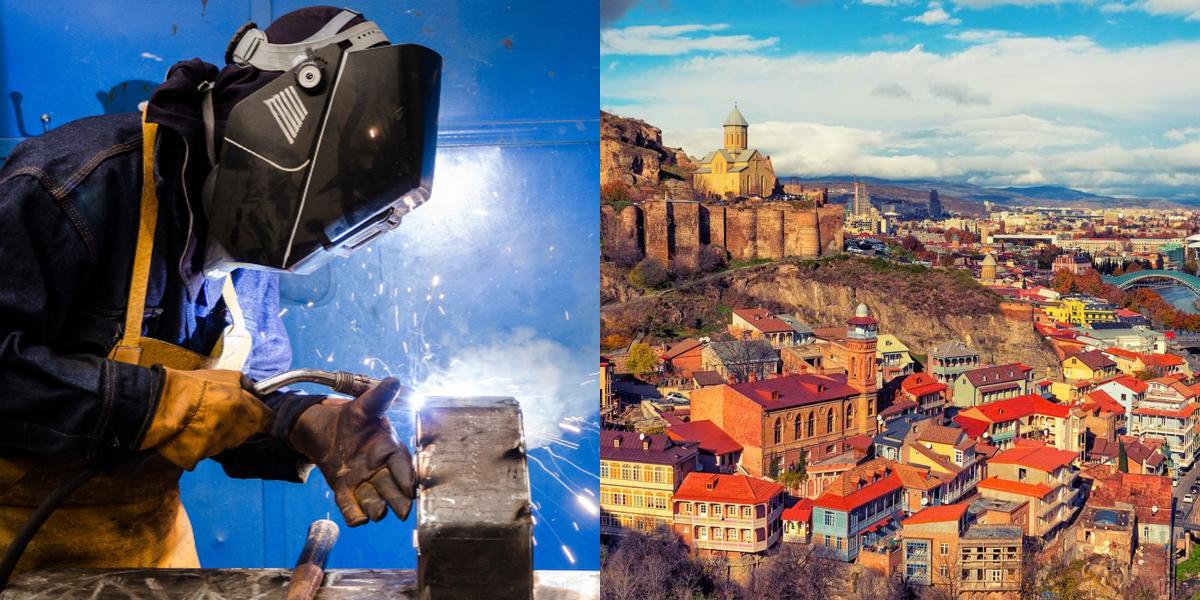How to Become a Welder in Georgia

Welders are highly skilled professionals who use specialized techniques to join, shape, and repair metal parts. Their craftsmanship is essential across multiple industries, from construction and automotive to aerospace and manufacturing. If you enjoy working hands-on and creating structures that last, becoming a welder in Georgia offers a stable and rewarding career path.
According to the U.S. Bureau of Labor Statistics (BLS), welders, cutters, solderers, and brazers in Georgia earn an average salary of $49,960 per year ($24.02 per hour), with consistent demand statewide.
How Long Does It Take to Become a Welder?
The path to becoming a certified welder typically takes 6–12 months of training, plus a few weeks to earn certification. Apprenticeships or specialized training can extend this timeline, depending on your career goals and chosen welding techniques.
Finding Welder Classes in Georgia
If you're interested in pursuing a career as a welder in Georgia, Dreambound is the largest platform for students to find and compare vocational training programs. Dreambound offers a comprehensive list of welding classes available in Georgia.
By using Dreambound, you can easily browse and compare different welding training programs in Georgia, making it easier for you to find the right class near you.
Remember, becoming a welder requires dedication, skill development, and commitment to safety. By completing the necessary education and training requirements, you can embark on a rewarding career in the welding industry in Georgia.
How Do I Get My Welder Certification?
Becoming certified is essential to proving your welding skills and securing better-paying jobs. Follow these general steps:
- Select Your Welding Process: Choose a focus area—MIG, TIG, Stick, or Flux-Cored Arc Welding.
- Train and Practice: Enroll in a certified training program to gain experience in your chosen method.
- Apply for Certification: Register for the AWS or NCCER certification test through your school or local testing center.
- Pass the Exam: You’ll complete both a written and performance test. The practical portion involves producing welds that meet inspection standards.
- Renew and Maintain: Some certifications require renewal or re-testing every few years to ensure continued skill proficiency.
How Do I Get a Job as a Welder?
Here’s how to start your career after certification:
- Build Your Resume: Highlight certifications, specialized welding techniques, and safety credentials.
- Create a Portfolio: Include photos or videos of completed welds to showcase your precision and technique.
- Network with Employers: Join local trade associations or attend welding events to meet hiring managers.
- Search for Openings: Use Dreambound, MyNextMove, or job boards for opportunities in construction, manufacturing, or energy sectors.
- Apply for Apprenticeships: Even short-term apprenticeships can accelerate your job prospects and skill growth.
Career Paths and Opportunities After Becoming a Welder
Once certified, welders in Georgia can advance into specialized or leadership roles such as:
- Welding Technician: Operate and maintain advanced welding equipment.
- Welding Inspector: Ensure welds meet national quality and safety standards.
- Fabrication Specialist: Focus on metal design and assembly for manufacturing.
- Pipe Welder: Work on high-pressure systems for industrial or energy sectors.
- Welding Instructor: Teach at technical colleges or training centers.
- Business Owner: Launch your own mobile welding or fabrication service.
Specializations such as underwater welding or structural steel fabrication offer even higher pay and unique opportunities across Georgia’s ports and industrial zones.
Salary and Job Outlook
According to the Bureau of Labor Statistics (BLS), welders in Georgia earn an average of $49,960 per year ($24.02 per hour), with higher earnings for those in construction and manufacturing sectors.
Top earners with advanced certifications or niche skills (such as pipe or TIG welding) can make over $60,000 annually.
Frequently Asked Questions
How much do certified welders make in Georgia?
The average salary for certified welders in Georgia is $49,960 per year, though pay varies by industry, skill level, and specialization.
Is welding a good career in Georgia?
Yes. Georgia’s construction, automotive, and manufacturing sectors continue to expand, making welding a secure and high-demand trade.
Do welders need a license in Georgia?
No state license is required, but most employers require AWS certification to verify your skills and safety knowledge.
What qualifications do I need to be a welder?
You’ll need a high school diploma or GED, completion of a welding training program, and an AWS or NCCER certification.
Final Thoughts
Becoming a welder in Georgia is a hands-on, high-demand career that offers both stability and advancement opportunities. With training programs as short as six months, you can begin earning quickly while developing a lifelong trade.
Take the first step today. Explore accredited welding schools near you on Dreambound and start shaping your future, one weld at a time.
If you're considering a career shift or curious about different professional paths, Dreambound has written many guides to help you in making informed decisions. Here are a few:

Stephanie Dayak is the go-to person for everything related to automation and integrations at Dreambound. As a Certified Tax Technician turned tech whiz, her sharp eye for detail and passion for efficiency become evident in every project she undertakes. When not solving tech puzzles, she's out exploring the local food scene, cozying up with her dogs, or plugged into a thought-provoking podcast. She's an ardent believer in mixing fun with functionality!





